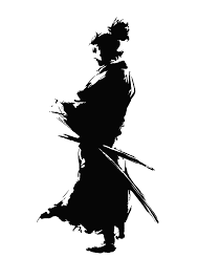 I began studying Mishna Bava Batra this morning and discovered a wonderful intersections between the teaching and the story I am going to tell you. The first mishna mentions two kinds of stones - stones that are hewned - stones which have been shaped by an iron tool, and unhewned stones - whole stones still in their natural form. Exodus 20:22 reads: "And if you make for Me an altar of stones, do not build it of hewn stones; for by wielding your tool upon them you have profaned them" The Hebrew word that is translated as your tool is חרבך, pronounced char-becha. The literal meaningof the Hebrew is "your sword." Another mishna (Middot 3:4) teaches that “Iron was created to shorten man’s days, while the altar was created to lengthen man’s days; what shortens may not rightly be lifted up against what lengthens.” Iron here of course alludes to a sword. And elsewhere in the Tanach, we find the term אבנים שלימות, avanim shleymut, stones that are whole - unhewn stones. Shleymut (wholeness) shares the same root as shalom (peace) The purpose of an altar was to promote peace. Not using an iron implement in building an altar then reminds us of our obligation to build a world that one day will not know war. And the intersection of stones, swords, and Samurai swordsman? Here's the story: Once a samurai came to the Zen master Hakuin and asked, “Master, tell me, what's the difference between heaven and hell?” The master, found meditating on his matted floor, was quiet for some time. At last he slowly turned and gazed at the man. He asked, "Who are you?" “I am a samurai swordsman and a member of the emperor’s personal guard.” “You call yourself a samurai warrior?” said Hakuin doubtfully. “Look at you, what kind of emperor would have you for a guard? You look more like a beggar!” “What?” the samurai shot back, growing red in the face. He reached for his sword. “Oho!” said Hakuin. “So you have a sword, do you! I bet you couldn't cut off the head of a fly with that." The samurai could not contain himself. He drew his sword from its sheath and lifted it above the head of the old monk. Hakuin responded quickly, “That sir, is the gate to hell.” The samurai slowly lowered his sword, put it back in its sheath, and bowed. “And that,” said the master, "is the gate to heaven.” Story found in multiple sources.
A lovely version can be found here on YouTube. Come learn the art of sacred storytelling with MFSI:The MultiFaith Storytelling Institute
0 Comments
Your comment will be posted after it is approved.
Leave a Reply. |
Mark Novak is a "free-range" rabbi who lives in Washington DC and works, well, just about everywhere. In 2012 he founded Minyan Oneg Shabbat, home to MOSH (Minyan Oneg Shabbat), MindfulMOSH (Jewish mindfulness gathering), and Archives
June 2017
Categories
All
|

 RSS Feed
RSS Feed
